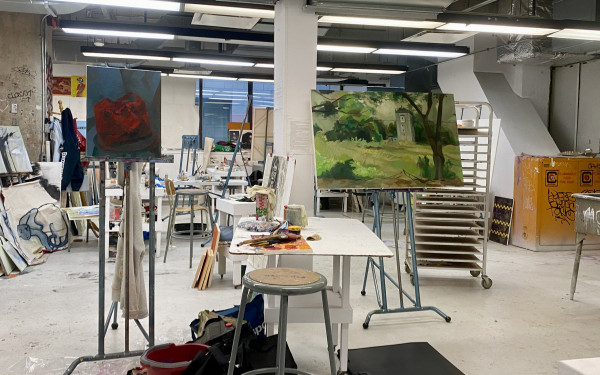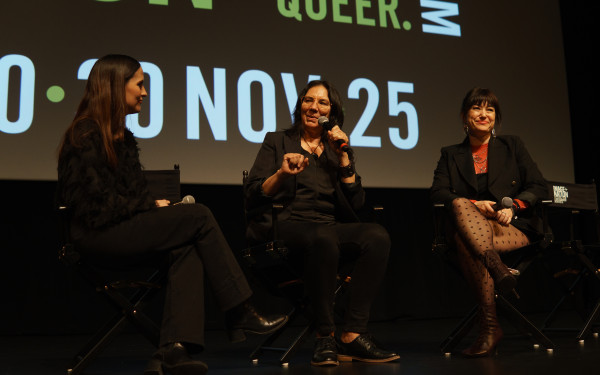Kings of the ring
In Jérémie Battaglia’s A French Youth, Camargue bullfighters face pressure inside and outside the ring
Under the thick heat of the Camargue sun and bolstered by the roar of a hot-blooded crowd, bullfighters Jawad Bakloul and Belkacem Benhammou perform extraordinary athletic feats.
They are also the stars of A French Youth, the latest film from Montreal-based director Jérémie Battaglia, presented as part of the CINEMANIA film festival program this past week.
The documentary centres on the fascinating regional sport of Camargue racing. In the southern coastal region of Camargue in France, young men like Jawad and Belka are ‘raseteurs’—acrobatic racers who charge at bulls with hook-like tools, attempting to snatch a ribbon off their horns. The real challenge is to do so without getting stabbed by the bull’s sharp horns or trampled under its hooves. Clad in glowing white, the raseteurs escape by performing impossibly acrobatic leaps over the barriers, into the crowds or back into the arena.
It’s a dangerous sport, and sometimes chaos unfolds. The bull can break out of the pen, or a raseteur will miss his timing and his body will meet the bull’s horns. To the delight of the crowd, athletes brush against death, again and again and again.
“It’s a love that wounds,” Bakloul said during a screening Q&A.
In the film, Benhammou describes the sport as an addiction.
For Bakloul and Benhammou, who are both French but of Moroccan and Algerian descent respectively, Camargue racing is also a means of social integration and finding purpose and freedom in an increasingly politically and socioculturally polarized France.
“I was interested in making a movie on young men of Maghrebine origin,” Battaglia said during the Q&A. “I was trying to find a different story from what we hear in the media, where especially in France, their image is negative and linked to terrorism and banditry.”
Battaglia’s research led him to the little village of Lunel in southern France. Lunel was known internationally as “France’s No. 1 jihadist town,” notably after six of its youths were found dead in 2015, having joined and fought for the Islamic State of Iraq and the Levant (ISIL, or ISIS) in Syria.
“I wondered if there was another story to tell in this village,” Battaglia said.
Despite the traditional bearings of Camargue racing, many of the racers are now young French men of North African descent. They face racist and Islamophobic discrimination in many areas of their lives, including in the sport of Camargue racing itself. At the same time, Camargue racing is an escape for poorer French youth, who grow up with no money and time on their hands, and an alternative to a perhaps even more dangerous world of selling drugs.
Watching A French Youth, it’s impossible not to root for the raseteurs, who are modern-day gladiators, fighting within the walls of old Roman arenas. Their heroism emerges not only from their athletic feats but also from their unabiding love for a sport that does not always seem to love them back.
Unfortunately, the broader Camargue racing community has not embraced the documentary.
“In the beginning, when I started working on the film, the French Federation of Camargue Racing were welcoming and interested. But when they found out I was interested in following these young Maghrebine men, they never answered my messages,” Battaglia said. “The film was [shown internationally], but they never talked about it, not even a Facebook puff post. It’s absurd, because they need the visibility, and the film is quite positive in representing Camargue racing and the environment of the sport.”
Two years after the events of the documentary, Bakloul has put an end to his career, choosing to prioritize his safety and new son over the sport that has sustained him for a decade. Benhammou has continued to charge forward, despite a double tibia fracture. In just the past year, he has been horned more than once, but he keeps getting back up.
It’s all in the name of the game, but like much of A French Youth, the news leaves you with warring heart-racing sentiments of awe, pride and horror.


_600_832_s.png)




